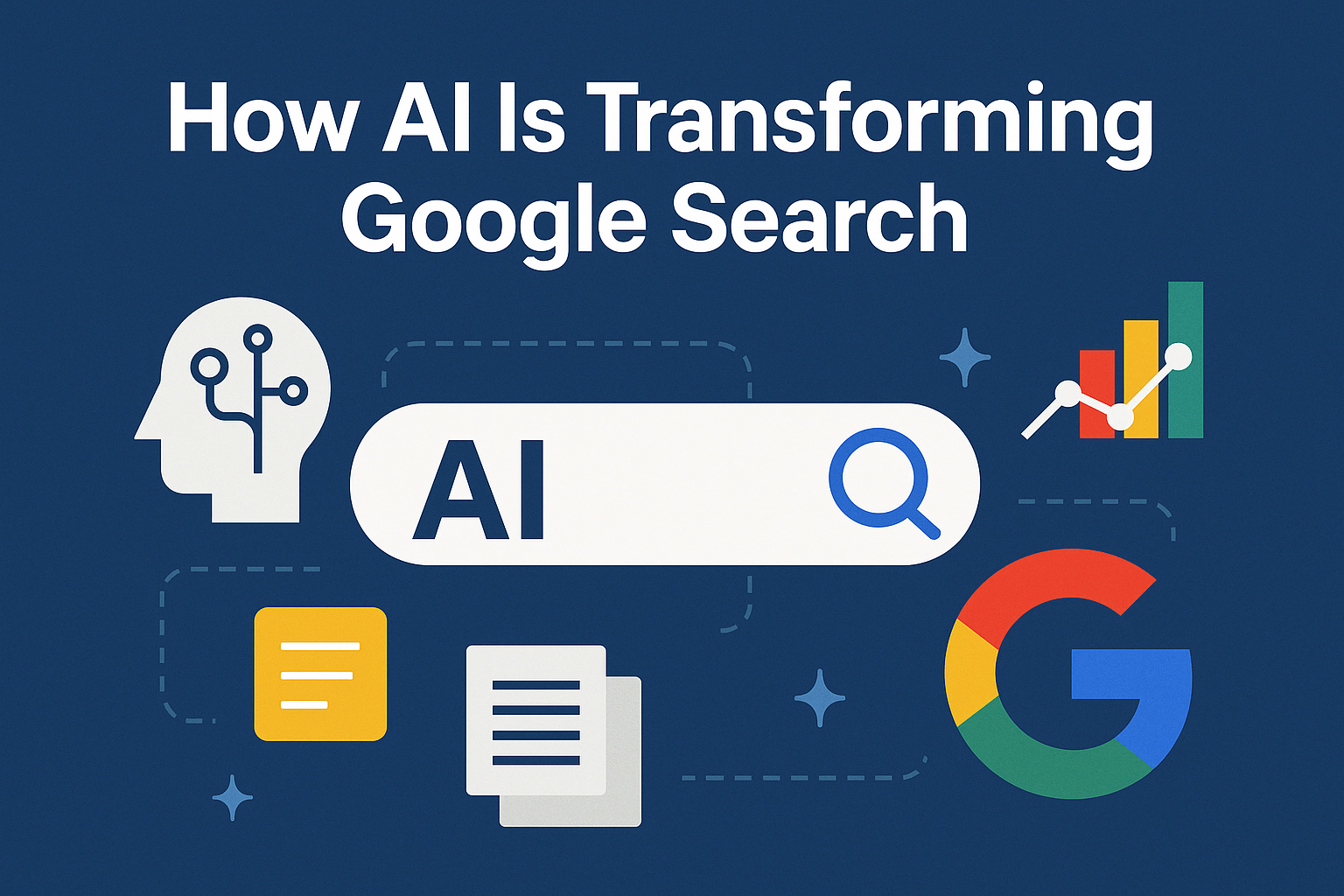How AI is Transforming Google Search
For over two decades, Google Search has been the gateway to the internet for billions of people. From its humble beginnings as a university project in the late 1990s to becoming the world’s most visited website, Google’s mission has remained consistent: to organize the world’s information and make it universally accessible and useful. But today, that mission is being radically reshaped—by artificial intelligence.
A Brief History of Google Search
In the early 2000s, search was simple. You typed in a few keywords, and Google returned a list of links ranked by relevance, largely based on its PageRank algorithm. Over time, Google became smarter—introducing autocomplete suggestions, knowledge panels, and featured snippets to better serve users.
However, the core experience remained mostly unchanged: search a question, get a list of links, and click through them to find what you need.
Enter AI: The Dawn of a Smarter Search
In the past two years, we've entered a new phase in the evolution of search. Google has begun integrating generative AI—especially through its Search Generative Experience (SGE) and Gemini AI models—directly into search results. This marks a shift from finding information to receiving it in real time.
Key Changes in Search Experience:
AI-Powered Overviews: Instead of 10 blue links, users now see AI-generated summaries that answer questions directly, often citing sources underneath.
Multimodal Search: You can now search using images, voice, and even combinations (e.g., snapping a photo and asking a question about it), thanks to tools like Google Lens and Gemini.
Context-Aware Queries: Google better understands natural language, intent, and context—handling follow-up questions in a more conversational way.
Personalization and Relevance: AI helps surface more tailored results based on location, preferences, and past activity.
The Rise of AI LLMs Challenging Google’s Dominance
While Google remains the largest player in the search space, it’s no longer alone. A new wave of AI-powered large language models (LLMs) is offering alternative ways to find, summarize, and interact with information—sometimes bypassing traditional search engines altogether.
Top AI Search Competitors:
ChatGPT (OpenAI) – With GPT-4 and GPT-4o, ChatGPT offers conversational answers, live browsing (for Pro users), and a wide range of plugins for deep search and task execution.
Perplexity AI – Combines real-time search with LLM-generated answers, always citing sources. A fast-growing alternative to traditional search engines.
Claude (Anthropic) – Known for its thoughtful and safe responses, Claude is gaining traction in enterprise and academic settings for more in-depth searches.
You.com – A privacy-forward search engine that combines summaries, web results, and app integrations to give direct, usable answers.
Microsoft Copilot (Bing + GPT) – Built into Bing, Copilot brings the power of OpenAI's models to search and productivity tools, directly competing with Google’s AI features.
These tools don’t just answer questions—they interpret, reason, and contextualize, offering an experience that feels more like chatting with a research assistant than querying a database.
Benefits for Users
The biggest benefit is time saved. Rather than combing through multiple sites, users can get the gist of an answer immediately. AI overviews act as an executive summary of the web.
Additional Benefits:
More intuitive experiences: Ask questions naturally, without worrying about keywords.
Faster decisions: Whether you're researching a product, planning travel, or learning a new topic, AI can summarize and compare options quickly.
Greater accessibility: Tools like voice and visual search help users with different abilities or preferences interact more easily with information.
A Glimpse Into the Future of Search
In the next 2–3 years, search will continue evolving into something far more dynamic and personalized. Here’s what to expect:
Conversational Agents: Search will feel more like talking to a smart assistant than typing into a box.
Proactive Search: AI will begin suggesting information before you ask—based on behavior, time, or location.
Deeper Personalization: Search results will reflect not just your history, but your intent, preferences, and current context.
Transparency and Trust: As AI-generated answers become more common, platforms will need to show clear sources, authorship, and bias indicators to maintain user trust.
Final Thoughts
AI is not just enhancing search—it’s reimagining it. Google is evolving from a search engine into a knowledge engine, delivering curated, contextual answers instead of just links. At the same time, powerful AI competitors like ChatGPT, Claude, and Perplexity are pushing the boundaries of what it means to “search” in a digital age.
For users, that means less time searching, more time doing—and a more seamless relationship with the information we rely on every day.
As this transformation unfolds, one thing is clear: the future of search isn't about typing questions—it's about understanding them.

